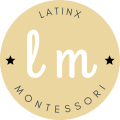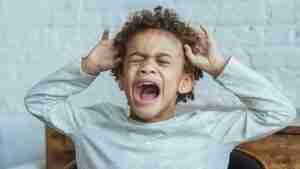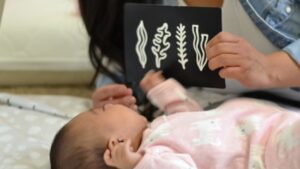
What makes a toy Montessori? 7 Characteristics To Consider
Learn to identify Montessori-inspired toys to support your child’s development

*Disclosure: I only recommend products I would use myself and all opinions expressed here are our own. This post may contain affiliate links that at no additional cost to you, I may earn a small commission. Thank you for your support!
Share this post
If you follow me on Instagram, you know I am very selective about the toys I get for my daughter. Questions I get asked the most are “where did you get that toy? Can you recommend toys for my child? How can I get my child to play with their toys?”
As parents, we all want to provide our children with the best possible start in life, and this often includes choosing the right toys for them. But with so many different types of toys available, it can be hard to know which ones are truly beneficial for our children’s development.
Let me tell you that you should not buy just any toy that looks appealing and colorful. Instead, opt for toys that align with the Montessori philosophy. But how do you identify Montessori toys? What makes a toy Montessori? Exactly what does Montessori toy mean?
Designed with the Montessori educational philosophy in mind, these toys are thoughtfully crafted to promote hands-on learning, encourage independent play, and help children develop important skills like problem-solving, creativity, and critical thinking.
In this article, you will learn what sets Montessori toys apart from traditional toys, how to identify them, and the many benefits they offer for children of all ages.
Topics in this post include:
- What makes a toy Montessori?
- Montessori toys explained: 7 characteristics of Montessori toys
- Why are Montessori toys wooden?
- Best Montessori toys by age
- What are the benefits of Montessori toys?
- Pros and cons of Montessori toys
- And so much more!
After reading this article, you will be able to select Montessori toys that benefit your child’s skills and development.
Montessori toys explained
I would like to begin by emphasizing that the term “Montessori toy” comes from toys that are designed with the principles of the Montessori educational philosophy in mind.
The Montessori approach emphasizes hands-on learning, independence, and self-direction, and these principles are reflected in the design of Montessori toys.
Montessori toys are usually made from natural materials like wood, metal, or fabric, and they are often simple in design, without any batteries or electronic components.
The purpose of Montessori toys is to encourage children to explore, discover, and learn through play, and to promote the development of important skills like problem-solving, creativity, and critical thinking.
What makes a toy Montessori?
So what is considered a Montessori toy? The benefits of Montessori toys are to promote hands-on learning and independent play, two of the core principles of the Montessori educational philosophy.
These often wooden Montessori toys are open-ended to encourage your child to explore, discover, and learn through play. They are typically made from natural materials and are often simple in design, without any flashing lights that can overstimulate your child.
Montessori toys can help your child develop important skills like problem-solving, creativity, and critical thinking. One of the biggest benefits of Montessori toys is that they encourage children to take charge of their own learning.
By providing open-ended play opportunities, Montessori toys allow your child to explore and discover at their own pace, without the pressure to perform or meet certain standards. This fosters a love of learning and helps your children develop confidence in their own abilities.
As your child learns to play independently, they also develop important skills like self-direction, focus, and persistence, which can serve them well in all areas of life. Another benefit of Montessori toys is that they can help children develop a deeper understanding of the world around them.
Since Montessori toys are made from natural materials like wood and are often based on real-world objects, they can help children make connections between what they see in the toy and what they experience in their daily lives.
7 characteristics of Montessori toys

Here are some important things to consider when you buy Montessori toys for your child. A simple tip is to consider the benefits of Montessori toys versus the short entertainment it provides your child.
1. Montessori toys focus on building one skill at a time
Montessori toys are designed to focus on one specific skill or concept at a time, rather than overwhelming children with too much information or too many choices.
By focusing on one skill at a time, your child is able to fully explore and master that skill before moving on to the next one. This approach allows them to build a strong foundation of knowledge and skills, which can serve them well as they continue to learn and grow.
2. Montessori toys are made from natural materials
Montessori toys are typically made from natural materials like wood, metal, or fabric. This is because Montessori philosophy emphasizes a connection to nature and respect for the environment.
By using natural materials, Montessori toys are also more durable and long-lasting than toys made from plastic or other synthetic materials.
3. Montessori toys are based on real life
Montessori toys are often based on real-world objects and experiences, such as cooking utensils, gardening tools, or musical instruments.
By using toys that are based on real-life experiences, children are able to make connections between what they are learning through play and what they experience in their daily lives.
This can foster a deeper understanding of the world around them and can help children develop important life skills.
4. Montessori toys encourage independence
Montessori toys are designed to encourage children to play independently and to take charge of their own learning.
By providing open-ended play opportunities and focusing on one skill at a time, Montessori toys allow children to explore and discover at their own pace, without the pressure to perform or meet certain standards. This fosters a sense of independence and helps children develop confidence in their own abilities.
5. Montessori toys are simple
Montessori toys are typically simple in design, without any unnecessary bells and whistles. This is because Montessori philosophy emphasizes the importance of allowing children to engage with the world around them in a hands-on way, without the distraction of flashy or complicated toys.
Simple Montessori toys also allow children to fully focus on the skill or concept being taught, without getting bogged down in extraneous details.
6. Montessori toys are open-ended
Montessori toys are designed to be open-ended, meaning that there is no right or wrong way to play with them. This encourages children to use their imaginations and explore the toy in a way that feels most natural to them.
Open-ended play opportunities also help children develop creativity and problem-solving skills, as they learn to think outside the box and come up with new and innovative ways to play.
7. Montessori toys do not have electronics
Montessori toys are typically free from electronic components like lights, sounds, or screens. This is because Montessori philosophy emphasizes the importance of hands-on, sensory experiences in early childhood development.
By focusing on toys that engage children’s senses and allow them to fully engage with the world around them, Montessori toys promote the development of important skills like spatial awareness, hand-eye coordination, and fine motor skills.
Where can I buy Montessori toys?
As a Montessori Guide and mom, I don’t just buy any toy I think looks “cute” or “entertaining.” I select educational toys that help my child gain life skills, from critical thinking and problem-solving to independence.
With that in mind, here are some places and companies that make Montessori-aligned toys and I believe your child will also benefit from them:
- Guidecraft
- KiwiCo (and their line of products like Panda Crate, Koala Crate, etc.)
- Montessori and Me
- And my Amazon storefront!
Best Montessori toys by age
Here is a list of great Montessori toys by age. Our go-to item is the Lovevery Play Gym because it grows with your child, providing activities for newborns, infants, and toddlers.
Feel free to explore the products below as I believe these align with the Montessori method.
Montessori toys for 0 to 6 months
- Lovevery Play Kits
- High-contrast black and white cards (I create this set)
- Tummy Time Engagement Set by Monti Kids
Montessori toys for 6 to 12 months
- Lovevery Play Gym and Lovevery Play Kits (yes, again!)
- Object permanence box
Montessori toys for 12 to 24 months
Why are Montessori toys wooden?
Montessori toys are often made from wood because of their natural and sensory qualities. Wood is a warm and natural material that is easy to manipulate and has a pleasant texture.
It is also more durable than plastic toys and can last for generations, making it a sustainable choice for parents who want to reduce their impact on the environment.
Wooden Montessori toys are also often designed to be simple in design, which allows children to fully engage with the toy and use their imagination to create their own play scenarios. This is why you often see Montessori toys without color. Simple and plain natural wood is all your child needs.
But the main reason why Montessori toys are made from wood is that they are based on the philosophy of Maria Montessori, who believed that children should be connected to the natural world.
Wooden Montessori toys help children develop a sense of connection to nature, which can promote a love of the outdoors and an appreciation for the environment. This can help your child develop a sense of responsibility for the world around them, which is an important aspect of Montessori education.
What are the benefits of Montessori toys?
Montessori toys offer a range of benefits for children, including:
- Promoting independence: Montessori toys are designed to encourage independent play, which helps your child develop a sense of autonomy and self-reliance. By providing open-ended play opportunities, Montessori toys allow children to explore and discover at their own pace.
- Encouraging creativity: Montessori toys are often open-ended and simple in design, which allows children to use their imaginations and come up with their own play scenarios. This can help children develop creativity and problem-solving skills, as they learn to think outside the box and come up with new and innovative ways to play.
- Fostering concentration and focus: Montessori toys are designed to focus on one skill or concept at a time, which helps children develop concentration and focus. By providing opportunities for hands-on, sensory exploration, Montessori toys help children fully engage with the toy and develop a deeper understanding of the concepts being taught.
- Developing fine motor skills: Many Montessori toys are designed to help children develop fine motor skills, which are essential for activities like writing, drawing, and using utensils. By providing opportunities for children to manipulate objects and practice their hand-eye coordination, Montessori toys can help children develop these important skills.
Are Montessori toys open-ended?
This is one of the reasons why I love Montessori toys because they are designed to be open-ended, meaning that your child decides how to play with them. This allows your child to use their imagination and explore the toy in a way that feels most natural to them.
Open-ended play opportunities can be particularly beneficial for your child’s cognitive development, as it allows them to explore and experiment with the world around them.
Pros and cons of Montessori toys
I would like to emphasize that the pros largely outweigh the cons. You have to consider the Montessori toy benefits and not just the price. Personally, I rather spend more money on toys that have a positive developmental impact on my child’s life rather than offering a short burst of entertainment.
Pros of Montessori toys:
- Encourage independent play and self-reliance
- Fosters creativity and problem-solving skills
- Develops concentration and focus
- Promotes a love of the natural world
- Can be sustainable and long-lasting
- Develops fine motor skills
Cons of Montessori toys:
- Can be more expensive than traditional toys
- May not be as flashy or exciting as some electronic toys
Montessori toys FAQs
What is the difference between Montessori and regular toys?
The main difference between Montessori and regular toys is the focus on skill development and learning through exploration.
Montessori toys are designed to help your child develop specific skills and concepts, often through hands-on, sensory exploration. Regular toys, on the other hand, are often designed for entertainment and may not have a specific educational or developmental focus.
Why are plastic toys not Montessori?
Plastic toys are not typically considered Montessori because they lack the natural and sensory qualities of wooden toys. Plastic toys are often mass-produced, brightly colored, and may not be designed with a specific educational or developmental focus.
Additionally, plastic toys can be harmful to the environment and may not be as durable or long-lasting as wooden toys.
How can you tell if a toy is Montessori?
Montessori toys are often simple in design, made from natural materials, and focused on specific skills or concepts. They are also open-ended, allowing children to explore and discover at their own pace.
A Montessori toy may have a specific purpose or activity, such as a set of blocks for building, or it may be designed for imaginative play, such as a set of wooden animals. Montessori toys may also have specific features, such as a lack of electronics or flashy colors, that make them stand out from traditional toys.
Why do Montessori toys have to be wooden?
Montessori toys are often made from wood because it is a natural and sensory material that is easy to manipulate and has a pleasant texture. Wood is also more durable and sustainable than plastic, making it a good choice for parents who want to reduce their impact on the environment.
Wooden toys are also designed to be simple, which allows children to fully engage with the toy and use their imagination to create their own play scenarios. The use of natural materials also helps children develop a sense of connection to the natural world, which is an important aspect of Montessori education.
Final thoughts on what makes a toy Montessori
As you can see, Montessori toys are designed to follow the Montessori method of education. When buying toys for your child, consider the developmental benefits it has on them.
Critical thinking, collaboration, independence, and problem-solving skills are just some of Montessori toys benefits.
I truly hope you found this article helpful. If you ever want more tips and strategies, or just need to stay motivated with Montessori at home, visit my Instagram page and YouTube channel where I share more information so you can be successful with Montessori at home.

Hello, I am Leslie. I am on a mission to help you support the growth and development of your child. With the right tools and proper guidance, you can navigate parenthood with confidence and assertion! My goal is to equip you with knowledge to help you construct a strong foundation for your child’s life.
Suggested articles
You May Also Like

How To Incorporate The Montessori Method At Home
To successfully incorporate the Montessori method at home, you need to create an environment that is designed to support your child’s learning and development.
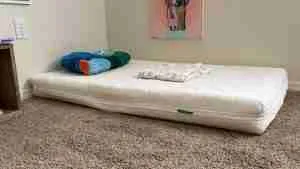
5 Powerful Benefits Of Montessori Floor Beds
A Montessori floor bed gives your child the freedom to move independently, promotes gross motor skills and spatial awareness, encourages a sense of autonomy, and fosters a strong connection with their surroundings.
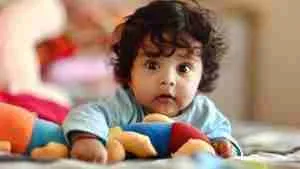
9 Best Montessori Toys For 3 Month Olds
These are the 9 best Montessori toys for 3 month olds that will nurture their overall development.
